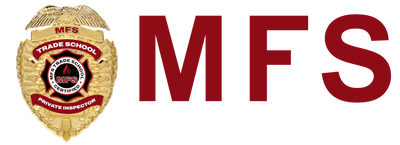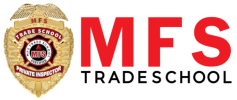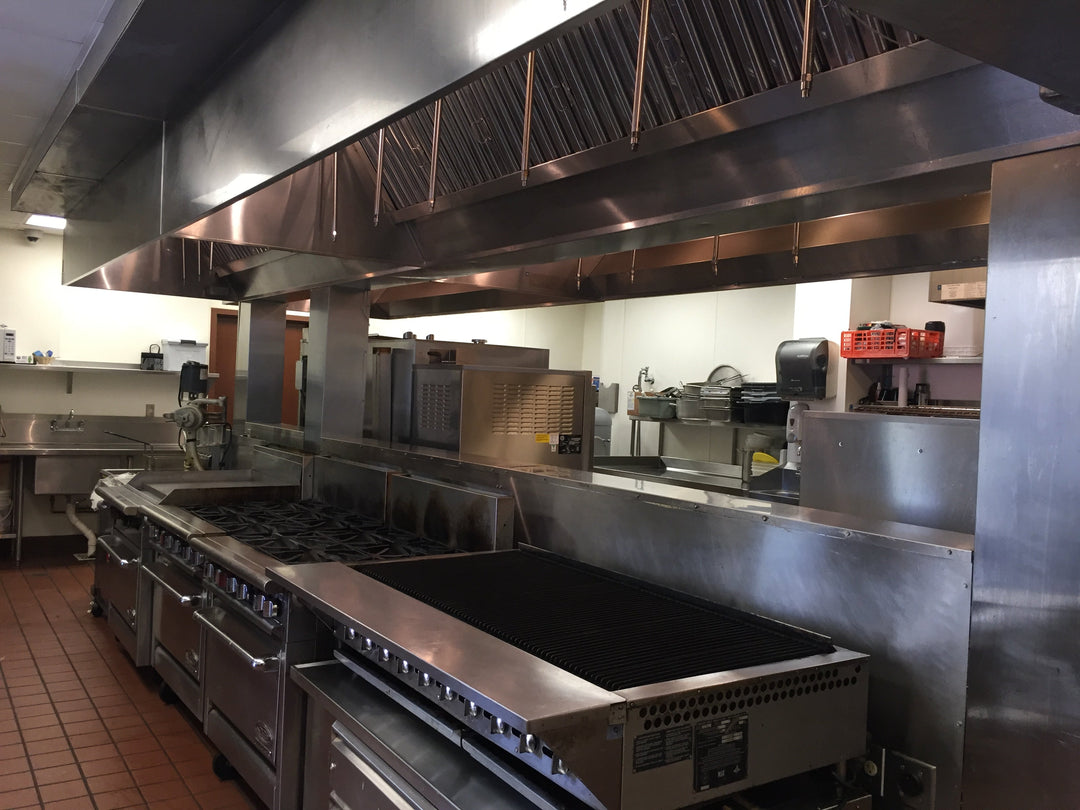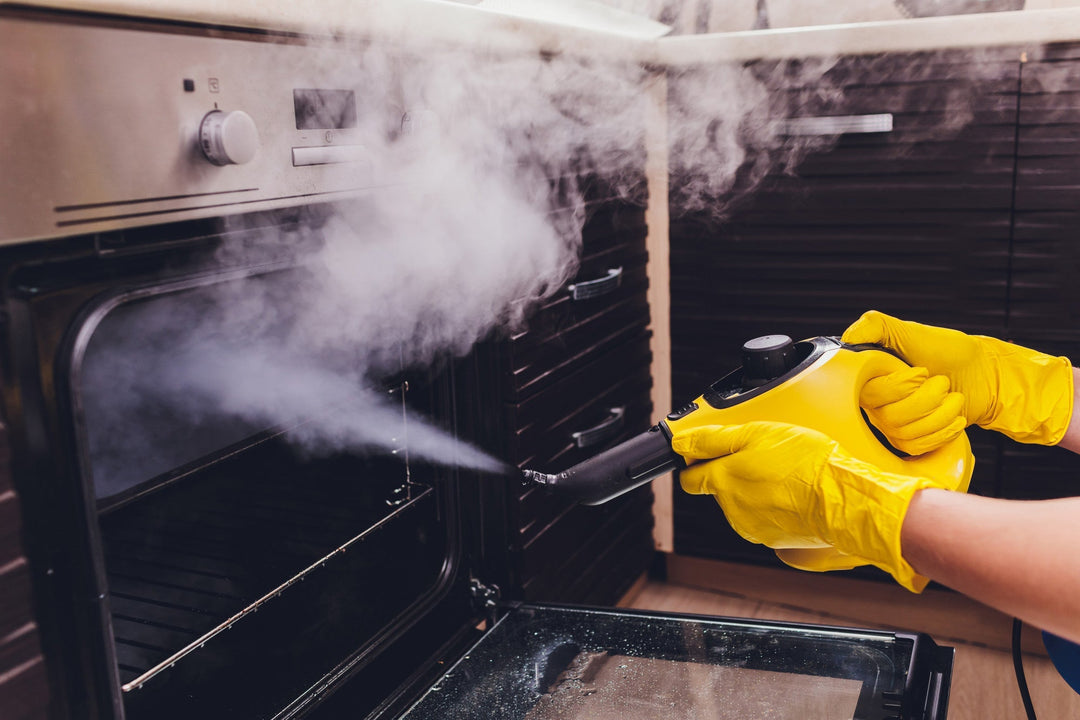Top 7 Risks of Ignoring Kitchen Exhaust Maintenance
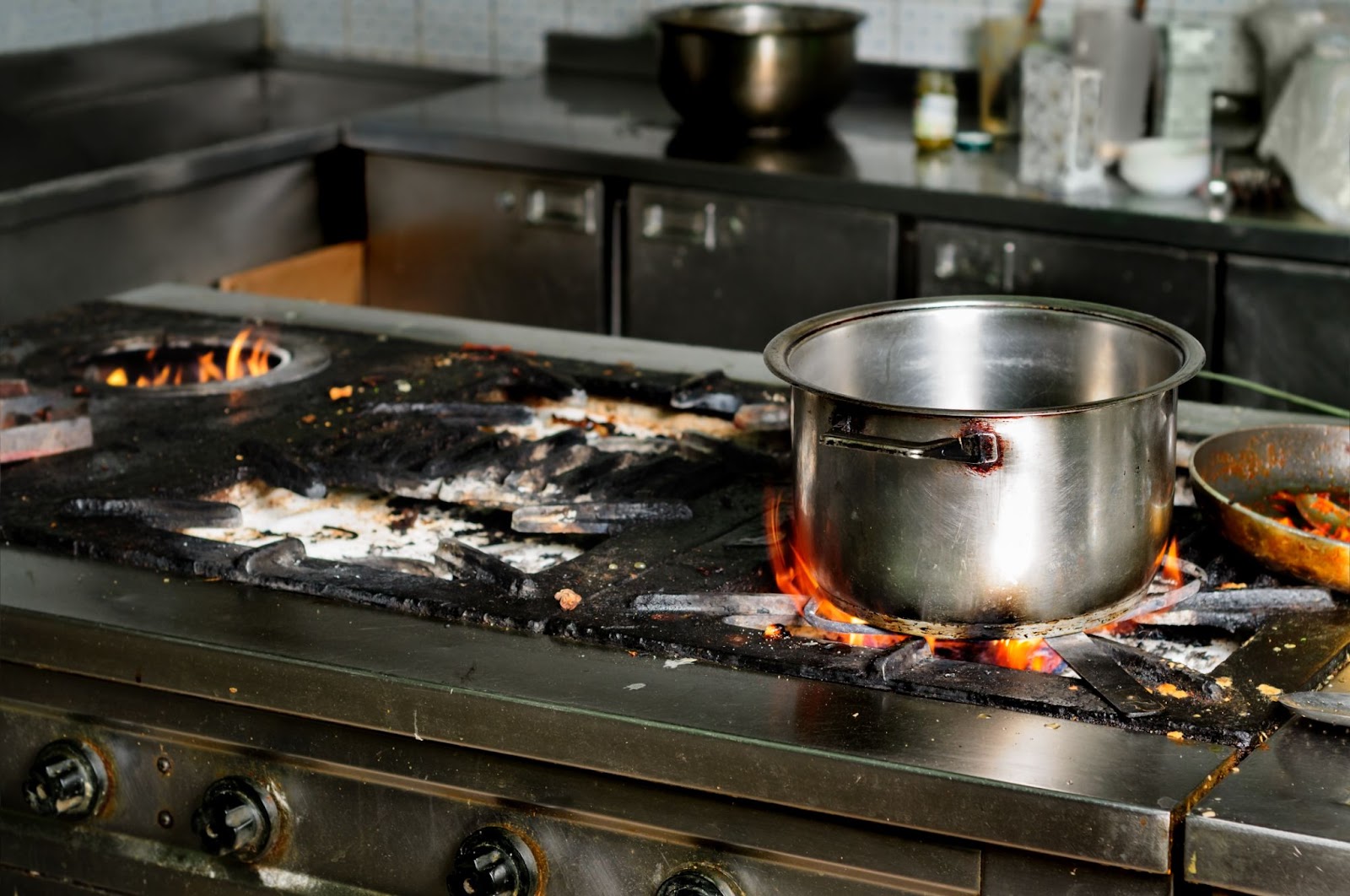
Maintaining a clean and efficient kitchen exhaust system is crucial for the safety and success of any commercial kitchen. Neglecting this critical component can lead to a host of hidden dangers that can jeopardize the well-being of staff, customers, and the business itself.
From increased fire hazards to health risks and code violations, the consequences of poor kitchen exhaust maintenance can be severe. Understanding these risks is essential for restaurant owners and managers who want to ensure a safe, compliant, and profitable operation.
In this article, we'll explore the hidden dangers of neglecting kitchen exhaust maintenance and provide valuable insights on how to protect your kitchen, staff, and customers through regular cleaning and upkeep.
What is Kitchen Exhaust Maintenance?
Kitchen exhaust maintenance involves the regular cleaning and upkeep of the ventilation system that removes grease, smoke, and heat from commercial kitchens. This critical process ensures the safety, efficiency, and longevity of the exhaust system, preventing the accumulation of flammable residues and maintaining optimal airflow, as seen in whole-house ventilation systems.
Proper maintenance typically includes:
-
Thorough Cleaning: Removing grease, grime, and debris from hoods, filters, fans, and ductwork
-
Inspection: Checking for signs of wear, damage, or malfunctions in the exhaust system components
-
Repairs and Replacements: Addressing any issues found during the inspection to restore the system to optimal condition
The frequency of maintenance depends on factors such as the volume of cooking, type of cuisine, and local regulations. For more details, check out our kitchen exhaust cleaning FAQs.
Investing in proper kitchen exhaust maintenance is not only a matter of safety and compliance but also a smart business decision. A well-maintained system operates more efficiently, reduces energy costs, and extends the lifespan of expensive equipment—benefits that directly impact your bottom line.
Increased Fire Hazards
One of the most significant risks associated with neglecting kitchen exhaust maintenance is the increased likelihood of devastating fires. Over time, grease and grime buildup in the exhaust system creates a highly flammable residue that can easily ignite from a single spark or high heat.
Grease fires can spread rapidly through the ductwork, causing extensive damage to the kitchen, building, and neighboring properties. In addition to property damage, these fires pose a serious threat to the safety of staff and customers, potentially resulting in injuries or loss of life.
Regular cleaning of the exhaust system is the most effective way to prevent grease fires. By removing the flammable residues, you significantly reduce the risk of fire and protect your business from catastrophic losses.
Proper maintenance also ensures compliance with fire safety regulations, such as NFPA 96, which mandates regular cleaning and inspection of commercial kitchen exhaust systems. Failure to comply with these standards can result in costly fines and legal liabilities.
Investing in hands-on kitchen exhaust hood cleaning training, like those offered at MFS Trade School, is a proactive step in preventing dangerous grease fires and maintaining a safe, compliant kitchen environment.
Increased Fire Hazards
Commercial kitchens face inherent safety challenges due to the constant use of open flames and high temperatures. The exhaust system, designed to remove heat and smoke, can turn into a fire hazard if neglected. This risk becomes prominent when maintenance is overlooked.
Layers of grease and grime can accumulate in the exhaust hoods and ductwork, creating a combustible environment. Such deposits act as fuel, making it easy for a spark from the kitchen to ignite them. This highlights the necessity of regular and effective cleaning to remove these hazardous buildups.
Routine inspections of the exhaust system are crucial for identifying vulnerabilities. Components like fan motors and electrical connections should be checked for any signs of damage, such as worn insulation or poor connections, which could serve as ignition points. Addressing these issues promptly enhances safety.
Employing advanced cleaning technologies can further reduce fire risks. Automated grease capture systems and high-performance filters help prevent grease accumulation. Scheduled professional cleanings not only meet safety standards but also ensure the kitchen operates securely.
By maintaining a rigorous cleaning and inspection routine, investing in quality maintenance solutions, and remaining vigilant, kitchen operators can significantly mitigate the risk of fire in their establishments.
Health and Safety Risks
Neglecting kitchen exhaust maintenance can significantly compromise the sanitation and safety of a commercial kitchen. Without regular cleaning, exhaust systems can accumulate layers of grease, leading to a damp environment where bacteria and mold flourish. These harmful microorganisms pose a threat to food safety, potentially leading to contamination and health code violations.
Ventilation systems must function optimally to ensure the removal of smoke, steam, and airborne particles, highlighting the importance of ventilation in modern homes. Poorly maintained systems struggle to achieve this, resulting in diminished air quality that affects both staff and customers. Exposure to pollutants and irritants can cause respiratory issues, aggravate allergies, and decrease overall comfort within the kitchen environment.
Routine maintenance and inspections of kitchen exhaust systems are essential for preserving a hygienic and safe atmosphere. By implementing a tailored maintenance schedule and utilizing advanced filtration systems, kitchens can effectively reduce the presence of contaminants. This proactive approach not only protects staff and patrons but also upholds the establishment's compliance with health regulations, preventing costly penalties and reputational damage.
Compliance Violations and Fines
Commercial kitchens operate under a strict framework of health and safety regulations designed to ensure the well-being of patrons and staff. Skipping regular exhaust maintenance jeopardizes compliance with these regulations, making businesses vulnerable to costly repercussions. Inspectors meticulously assess kitchens for adherence to standards, and any lapses in exhaust system upkeep can lead to serious infractions.
Ensuring compliance through regular maintenance and inspections is vital for protecting your business from these adverse outcomes. Consider exhaust cleaning coaching for business owners to enhance your knowledge and stay compliant.
Decreased System Efficiency
The efficiency of a kitchen exhaust system plays a crucial role in the overall operation of a commercial kitchen, similar to how mechanical ventilation systems are designed to maintain optimal airflow and indoor air quality. When grease and debris accumulate within the system, it impairs the exhaust fan's ability to effectively remove smoke, heat, and odors. This blockage forces the system to exert more effort, leading to increased energy consumption and higher utility bills.
Over time, this added strain can result in accelerated wear and tear, necessitating costly repairs or even the replacement of components prematurely. Investing in energy-efficient ventilation systems can help reduce this strain and improve overall performance.
Implementing regular maintenance and cleaning routines is essential for preserving system efficiency and ensuring a comfortable kitchen environment. You can learn more with our online course for commercial kitchen cleaning.
Costly Repairs and Replacements
Exhaust systems that lack regular upkeep often face unexpected failures and operational hitches. The wear and tear from accumulated contaminants can lead to malfunctions in critical components like ventilation fans and exhaust motors. These parts are essential for maintaining proper airflow and, when compromised, can result in significant operational downtime and increased maintenance expenses. Such unscheduled disruptions strain kitchen efficiency and elevate repair costs.
Moreover, addressing mechanical failures on an emergency basis often involves premium charges for labor and parts, further inflating operational expenses. The downtime associated with these repairs can also lead to revenue loss if kitchen operations are halted. By contrast, a structured maintenance program can preempt these challenges, ensuring that all system components perform optimally and reducing the likelihood of unexpected breakdowns.
A strategic maintenance plan is a wise investment for long-term operational stability. Routine inspections, coupled with targeted cleaning, allow for early detection of wear and potential issues, facilitating timely interventions. This proactive approach not only minimizes emergency repair costs but also sustains the exhaust system’s performance, ensuring continued kitchen productivity and safety without unexpected interruptions.
Negative Impact on Reputation
In the restaurant industry, perception significantly influences customer choice. The state of kitchen exhaust systems can subtly speak volumes about a restaurant's overall standards. Unpleasant odors or visible grime can leave customers questioning the establishment's commitment to hygiene. These sensory cues can deter potential patrons, leading them to opt for competitors where they perceive higher cleanliness standards.
Health code infractions linked to neglected exhaust systems can severely tarnish a restaurant's public image. Reports of violations can quickly escalate into publicized setbacks, affecting customer trust. In an era where online reviews shape public opinion, a reputation for poor hygiene can have long-lasting effects, driving diners away and impacting revenue. The financial ramifications extend beyond immediate fines and shutdowns, influencing long-term business viability.
A proactive approach to exhaust maintenance signals dedication to excellence and customer care. Demonstrating adherence to high cleanliness standards not only ensures regulatory compliance but also builds customer confidence. This emphasis on quality fosters positive reviews and word-of-mouth recommendations, critical drivers of success in the competitive dining market. By prioritizing the upkeep of exhaust systems, restaurants can reinforce a positive reputation and attract a loyal customer base.
Protect Your Kitchen with Regular Maintenance
Ensuring the longevity and optimal function of kitchen exhaust systems requires consistent and strategic upkeep. Partnering with specialized cleaning services provides the expertise needed to eliminate grease and contaminants thoroughly, aligning with industry standards to maintain compliance and safety. For more information, contact MFS Trade School.
Professionals equipped with the latest technology can effectively reach and clean components that are often challenging to access, thereby minimizing the risk of hidden hazards. They also provide ventilation solutions for residential and commercial spaces to enhance air quality and system performance.
Developing a customized maintenance plan is vital for addressing the unique demands of your kitchen operations. Consider factors such as the intensity of usage and the specific culinary techniques employed, which determine the appropriate frequency of cleanings. High-activity kitchens, particularly those involved in frying or grilling, benefit from more frequent interventions. Establishing precise protocols and timelines ensures the consistent removal of residues, safeguarding against potential risks.
Integrating superior maintenance products into your routine bolsters the efficiency and safety of the system. Utilizing advanced grease containment solutions and regularly updating filtration components can prevent clogging and ensure continuous airflow. By adopting these proactive measures, kitchens can maintain a clean and functional environment, enhancing both operational performance and the dining experience.
